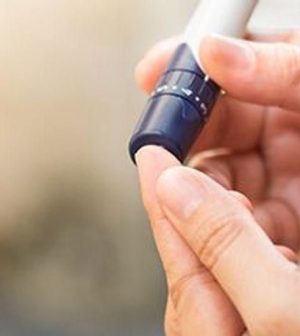- 10 Strategies to Overcome Insomnia
- Could Artificial Sweeteners Be Aging the Brain Faster?
- Techniques for Soothing Your Nervous System
- Does the Water in Your House Smell Funny? Here’s Why
- Can a Daily Dose of Apple Cider Vinegar Actually Aid Weight Loss?
- 6 Health Beverages That Can Actually Spike Your Blood Sugar
- Treatment Options for Social Anxiety Disorder
- Understanding the Connection Between Anxiety and Depression
- How Daily Prunes Can Influence Cholesterol and Inflammation
- When to Take B12 for Better Absorption and Energy
What Blood Sugar Levels Best Protect Against Heart Trouble in Those With Diabetes?

THURSDAY, Sept. 30, 2021 (HealthDay News) – For people with diabetes who have a stroke, there may be an ideal blood sugar target to prevent another one or a heart attack, a South Korean study finds.
To determine average blood sugar levels over the past two to three months, the study team used the hemoglobin A1C test.
“We know that having diabetes may be associated with an increased risk of having a first stroke,” said study author Dr. Moon-Ku Han, of Seoul National University College of Medicine. “But our results indicate that there is an optimal blood sugar level that may start to minimize the risk of having another stroke, a heart attack or other vascular problems, and it’s right in the 6.8% to 7% range.”
The study included more than 18,500 people with diabetes (average age: 70) who were admitted to the hospital for an ischemic stroke — one caused by a blood clot.
Participants had an average A1C of 7.5%. Anything above 6.5% typically shows diabetes, while levels below 5.7% are considered normal.
A year later, researchers found that 1,437 participants, about 8%, had experienced a heart attack or died from vascular disease. About 5% (954) had another stroke.
The study found participants’ risk for a heart attack or similar vascular diseases was 27% greater when they were admitted to the hospital with A1C levels above 7%, compared to those admitted with A1C levels below 6.5%. Their risk for stroke was 28% greater when admitted with A1C levels above 7%, compared to those below 6.5%.
The findings were published online Sept. 29 in the journal Neurology.
“Our findings highlight the importance of keeping a close eye on your blood sugar if you’re diabetic and have had a stroke,” Han said in a journal news release.
Researchers noted that one limitation of the study is that blood sugar levels were only tested at the outset.
More information
The American Diabetes Association has more on living with diabetes.
SOURCE: American Academy of Neurology, news release, Sept. 29, 2021
Source: HealthDay
Copyright © 2026 HealthDay. All rights reserved.










